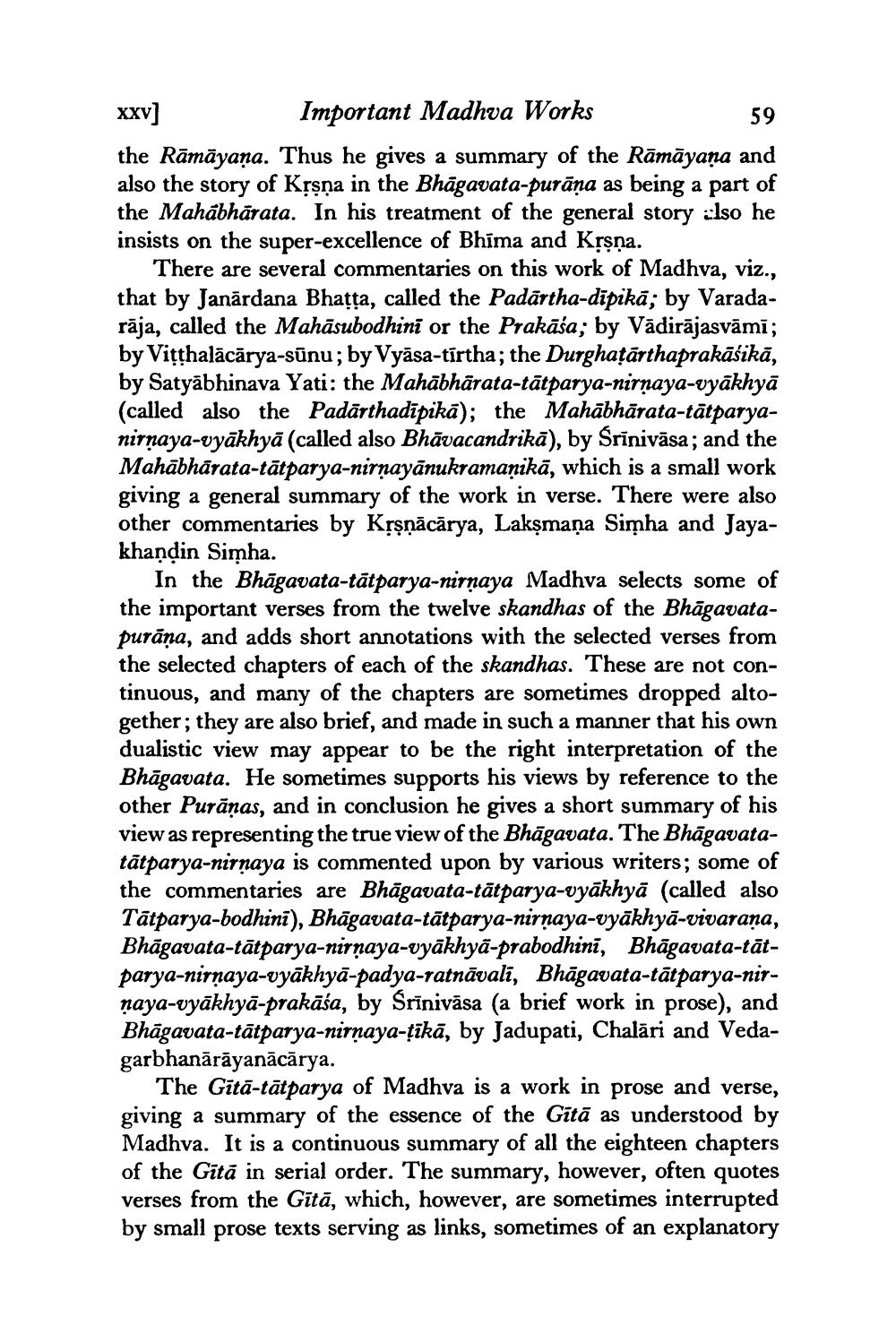________________
XXV] Important Madhva Works
59 the Rāmāyana. Thus he gives a summary of the Rāmāyaṇa and also the story of Krsna in the Bhāgavata-purāna as being a part of the Mahābhārata. In his treatment of the general story elso he insists on the super-excellence of Bhima and Krşņa.
There are several commentaries on this work of Madhva, viz., that by Janārdana Bhatta, called the Padārtha-dipikā; by Varadarāja, called the Mahāsubodhini or the Prakāša; by Vădirājasvāmī; by Vitthalācārya-sūnu; by Vyāsa-tirtha; the Durghațārthaprakāśikā, by Satyābhinava Yati: the Mahābhārata-tātparya-nirnaya-vyākhyā (called also the Padārthadīpikā); the Mahābhārata-tātparyanirnaya-vyākhyā (called also Bhāvacandrikā), by Srinivāsa; and the Mahābhārata-tātparya-nirnayānukramaņikā, which is a small work giving a general summary of the work in verse. There were also other commentaries by Krşņācārya, Lakşmaņa Simha and Jayakhandin Simha.
In the Bhāgavata-tātparya-nirnaya Madhva selects some of the important verses from the twelve skandhas of the Bhāgavatapurāna, and adds short annotations with the selected verses from the selected chapters of each of the skandhas. These are not continuous, and many of the chapters are sometimes dropped altogether; they are also brief, and made in such a manner that his own dualistic view may appear to be the right interpretation of the Bhāgavata. He sometimes supports his views by reference to the other Purānas, and in conclusion he gives a short summary of his view as representing the true view of the Bhāgavata. The Bhāgavatatātparya-nirnaya is commented upon by various writers; some of the commentaries are Bhāgavata-tātparya-vyākhyā (called also Tātparya-bodhini), Bhāgavata-tātparya-nirnaya-vyākhyā-vivarana, Bhāgavata-tātparya-nirnaya-vyākhyā-prabodhini, Bhāgavata-tätparya-nirnaya-vyākhyā-padya-ratnāvalī, Bhāgavata-tātparya-nirnaya-vyākhyā-prakāśa, by Srīnivāsa (a brief work in prose), and Bhāgavata-tātparya-nirnaya-țīkā, by Jadupati, Chalāri and Vedagarbhanārāyanācārya.
The Gītā-tātparya of Madhva is a work in prose and verse, giving a summary of the essence of the Gītā as understood by Madhva. It is a continuous summary of all the eighteen chapters of the Gitā in serial order. The summary, however, often quotes verses from the Gītā, which, however, are sometimes interrupted by small prose texts serving as links, sometimes of an explanatory




